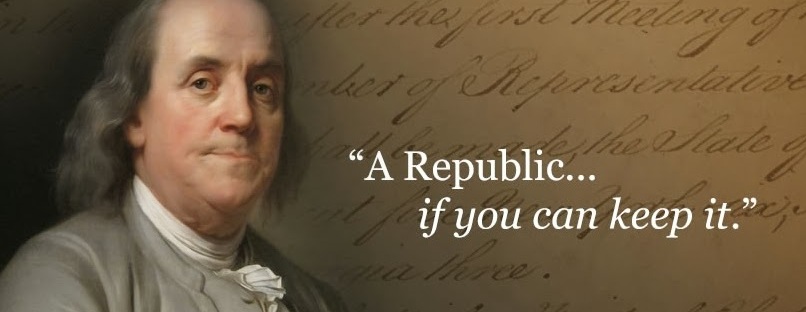There is an often-told story, which many of you have undoubtedly heard before, that at the end of the Constitutional Convention, Benjamin Franklin was approached by a woman who asked him what sort of government the delegates had created. Franklin famously replied, “A republic, if you can keep it.”
In 2016, many people are returning to Franklin’s famous remarks and asking themselves about the future of this nation. There is a deep sense of pessimism about this election, and many citizens are trying to understand how we got here. I do not think it is coincidental that this moment in our nation’s history coincides with a correspondent and troubling decline in civics education and knowledge.
Countless reports and studies confirm that American citizens of all ages lack a basic understanding of our nation’s history and form of government. A survey released on September 17, 2016, by the Annenberg Public Policy Center at the University of Pennsylvania found that that only 26 percent of people can name the three branches of government (executive, legislative and judicial), a statistically significant decline since 2011, when 38 percent could name all three. 31 percent of respondents could not name any of three branches.
Additionally, across the nation, school boards and colleges and universities are cutting civics and history programs and young citizens are, as a result, losing the opportunity to study our nation’s Constitution and history. It should, therefore, be no surprise that, for example, only 23% of middle school students performed at or above proficient on the civics portion of the National Assessment of Educational Progress.
We are not only failing to teach our citizens about U.S. history and the Constitution in primary and secondary school, but also in college. The American Council of Trustees and Alumni surveyed 1,100 colleges and universities last year and found that only 18.3% of those schools required even a single foundational course in American government or history. At U.C. Berkeley, for example, the U.S. History requirement can be replaced with a course like “Dutch Culture and Society.”
And while the situation is dire, there is a vibrant constellation of organizations devoted to stemming the tide and reversing the troubling declines in civic and constitutional literacy. I’m proud of be part of this movement, and will use this blog as a space to discuss issues related to civic and constitutional literacy, the Constitution, and our nation’s history.

I think that this is great. Based on your blog, I looked at the insert in the Times, and found it to be quite illuminating. I appreciated the bipartisan nature of that work.
Having worked on all 3 sides of the criminal justice system (prosecutor, judge, now defense attorney), I can’t tell you how many times I have been disappointed at the lack of understanding by much of our population of the Constitution – especially by those who ought to know better. I look forward to reading more of your work, and sharing it with others.
(And a quick thank you to Texas Supreme Court Justice Willett, who retweeted your blog announcement, which got me to look at this in the first place.)
LikeLike
Judge Ibarra – thank you for your kind note and for following and recommending my blog! It is most appreciated. With sincerest thanks, Julie
LikeLike